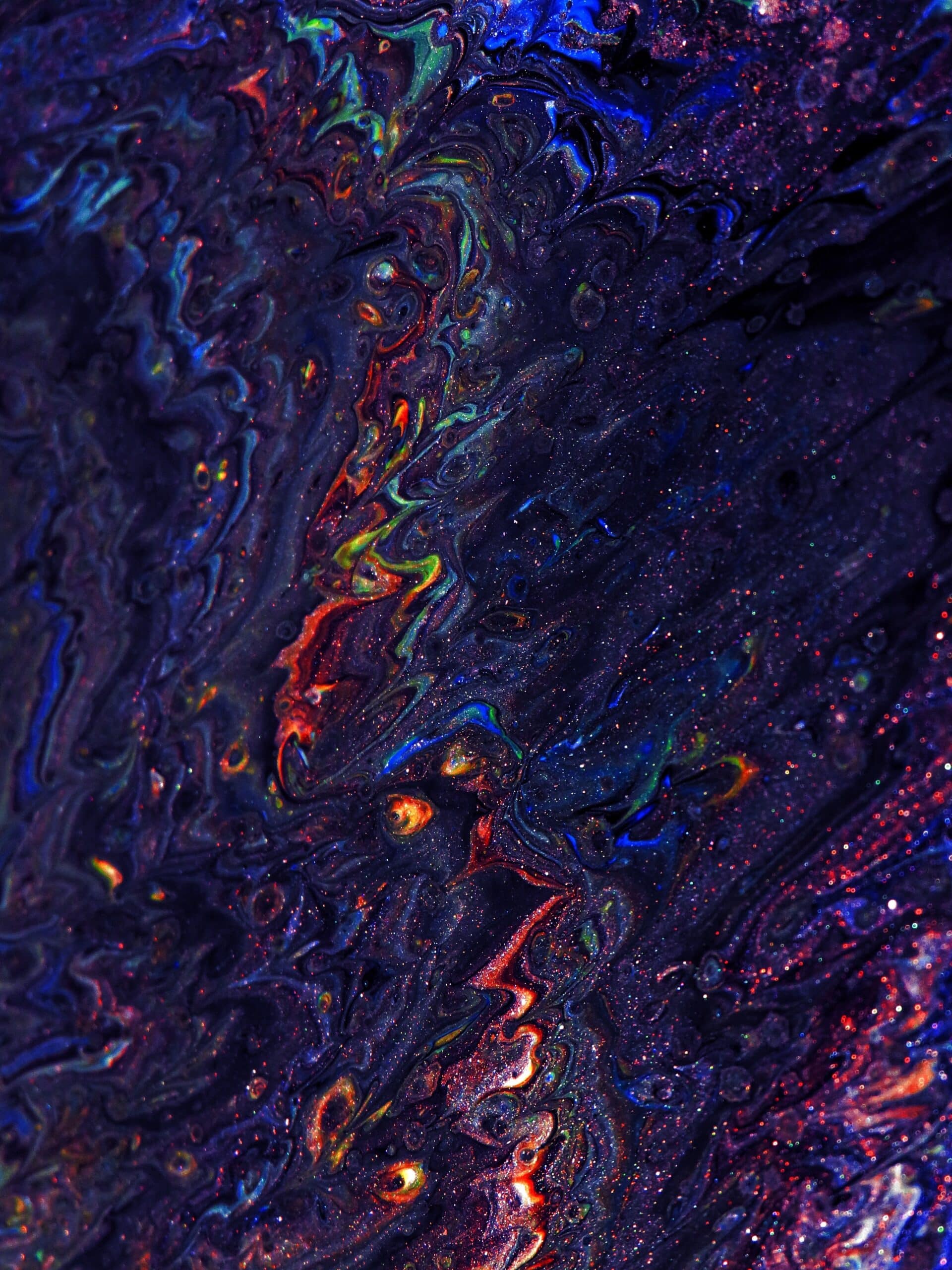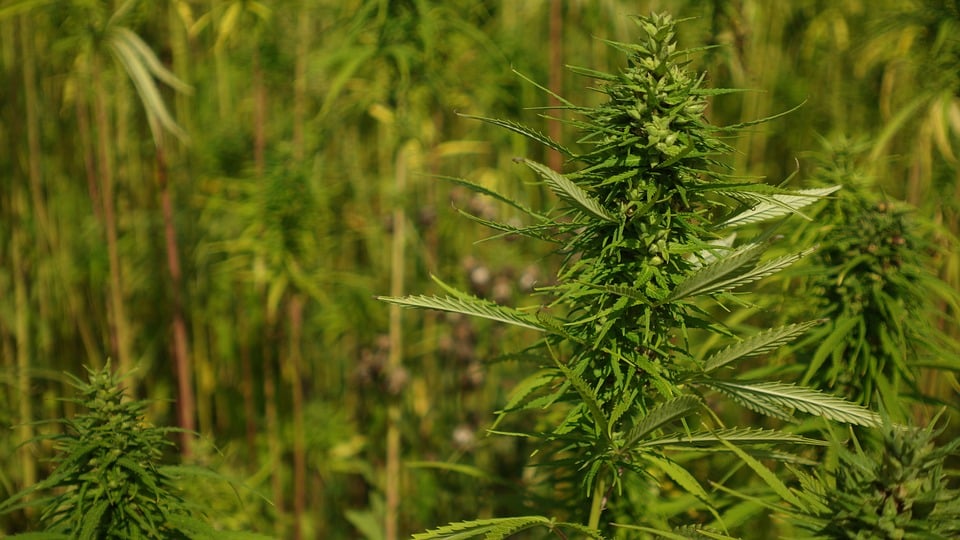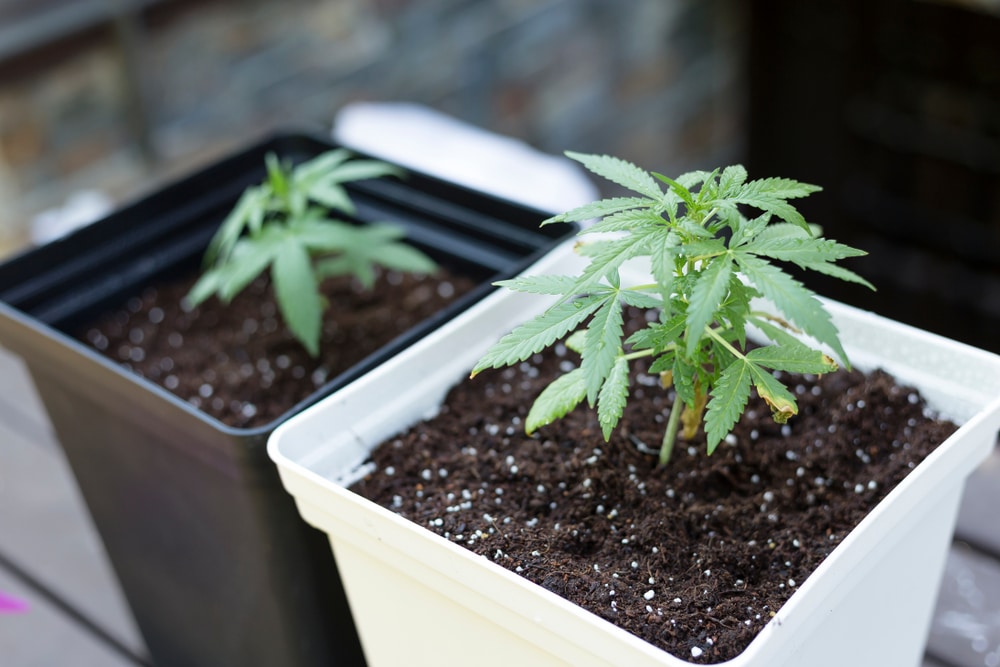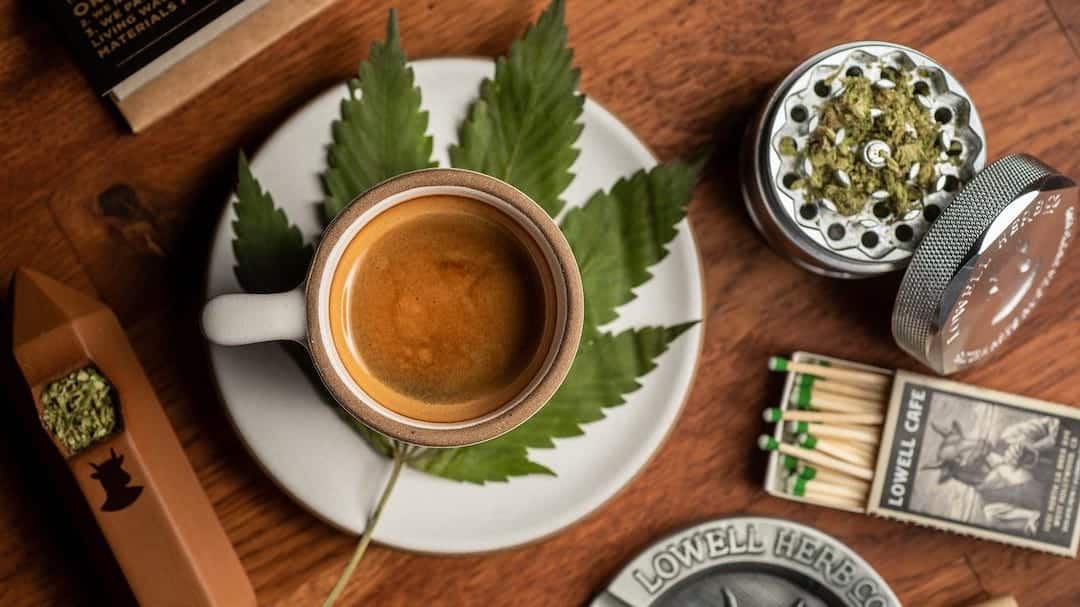No products in the cart.
Marijuana Education
What Does Greened Out Mean?
Getting “greened out” is a rare reaction that results from high levels of THC, the primary psychoactive ingredient in cannabis. Nobody has ever died of a cannabis overdose, but paranoia and anxiety could combine to cause some unwanted side effects.
The advent of marijuana legalization in several states means consumers have access to vastly superior products. Improved growing methods and a better understanding of the process offer greater potency and quality.
Due to their strength, high THC cultivars could cause adverse outcomes, like greenies. Read on to learn about this potential reaction, why it happens, how to mitigate its effects, and how to avoid it. We also explain how to care for users who display symptoms.
Let’s dig in.
How does greening out happen?
What is a weed green out? We can link this unusual and unnerving experience directly to excessive THC intake. Tetrahydrocannabinol (THC) is the principal psychoactive ingredient in weed and the most intriguing of around 113 cannabinoids.
THC produces euphoria, an altered state of mind, relaxation, and possibly heightened senses. The effects change with higher THC concentrations, potentially causing the negative responses to outweigh the benefits.
Our endocannabinoid system (ECS) includes receptors, lipids, and enzymes that maintain homeostasis or balance in the body. It’s crucial for sleep, immune function, appetite, brain function, blood sugar levels, and reproduction.
The body produces endocannabinoids, like anandamide, similar to natural THC. It interacts with the body in much the same way, producing euphoria. THC binds to receptors in the central nervous system, affecting serotonin release. Serotonin is the “happiness hormone.”
Greened-out effects occur when heavy amounts of THC overstimulate the brain, which releases too much serotonin. At these levels, it causes confusion, high heart rate, nausea, or vomiting.
Greening out is a take on the blackouts that drinkers experience with heavy alcohol consumption. Some call it a “white out” or a “whitey,” because the first indication is often a draining of facial color, low blood pressure, fainting, or vomiting.
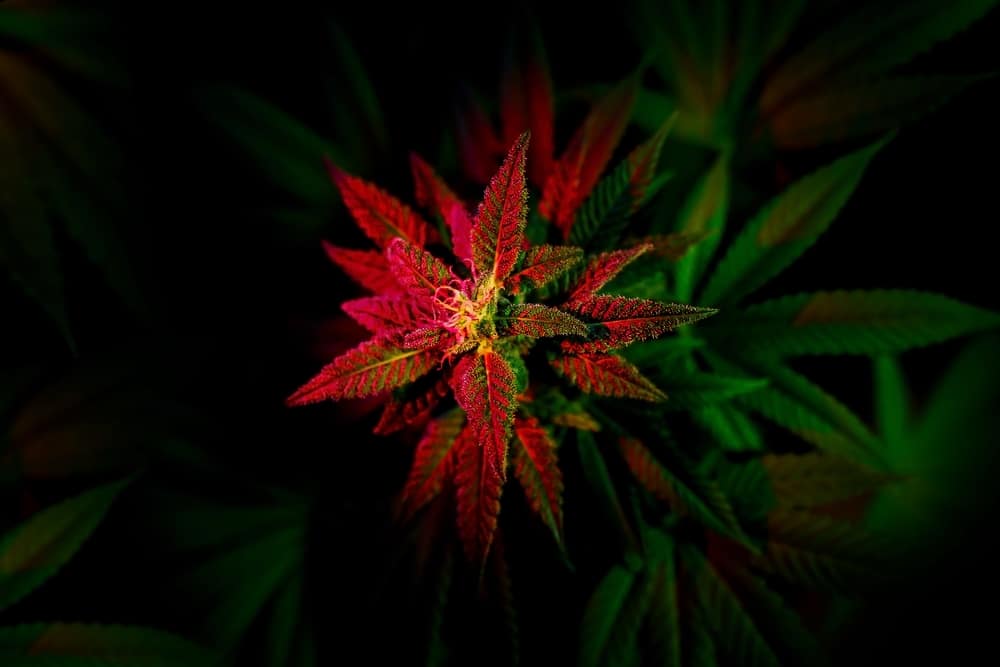
Can too much THC be dangerous?
Too much tetrahydrocannabinol is sometimes called a THC overdose, or toxicity. Nobody has ever died or suffered severe long-term damage from a cannabis overdose, but it’s not something you want to experience, either.
People with pre-existing health conditions, especially heart issues, should steer clear of excess THC. Speak to your doctor, as negative reactions or feeling greened out could be much more concerning in this case.
THC and increased heart rate go hand-in-hand, so blood pressure problems and conditions that impact the cardiovascular system could spell trouble.
Users regularly report greening out with edibles, especially the legendary, ultra potent cookies and space cakes. Smoking is as likely to produce the same reaction, so long as the THC levels are high enough. Dabbing involves high THC products, so green outs are more likely.
Wait for your body to process the cannabinoid before consuming more. There are ways to reduce the impact, but first, make sure your diagnosis is accurate.
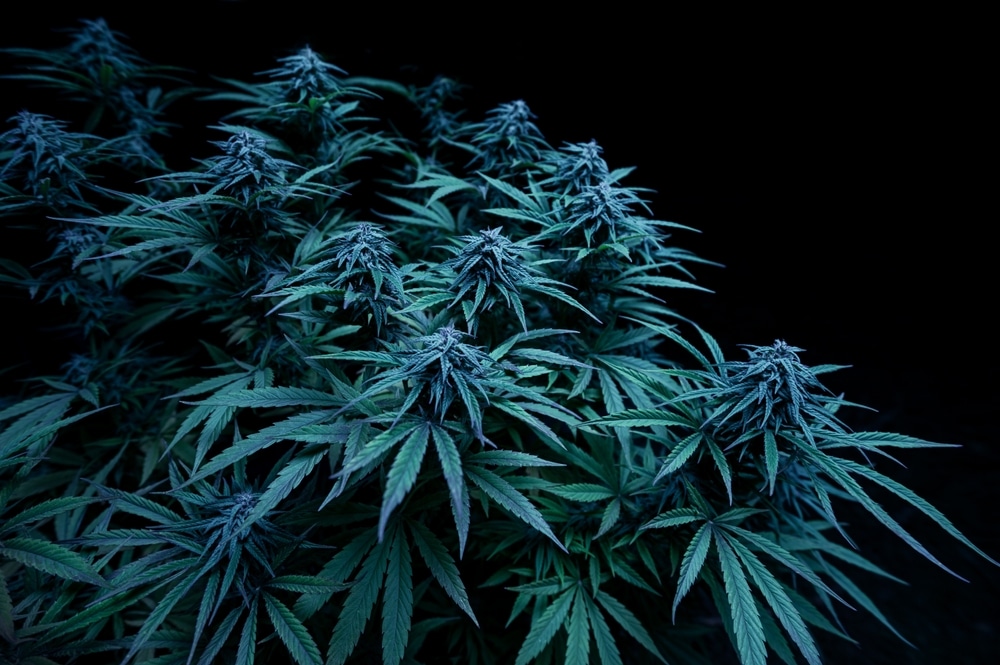
What are the symptoms to look out for?
Several signs point to the effects of greening out. The majority also indicate you’re high as a kite. If the euphoric feeling becomes overwhelming, you could have an adverse reaction with unpleasant disorientation, sweats, or nausea.
Dizziness
Balance issues occur when people take cannabis, both literally and figuratively. Dizzy spells or lightheadedness aren’t unusual when consuming cannabis products, but it’s less manageable if you overdose on THC.
In combination with alcohol or prescription medications, users may find it difficult to remain upright. Lying down in a comfortable position usually helps, but most warn against closing your eyes, as the room could start spinning.
Nausea
Most people have heard about cannabis use by cancer patients fighting appetite issues from chemotherapy. For them, an improved appetite is a lifesaver. If your stomach starts churning during or after marijuana use, it may be a sign of overindulgence.
Anxiety
Many people use cannabis products to control symptoms of anxiety, but it’s a balancing act. Low-level doses could relieve issues, but heavy doses and potent strains may have the opposite effect.
Everyone is different and displays a spectrum of reactions to THC. Ensure you understand your tolerance to avoid downers, like feeling greened out.
Increased heart rate
Cannabis could increase your heart rate and elevate blood pressure immediately after use. If you have an underlying condition, these effects can be dangerous. A racing heart and high blood pressure could lead to a stroke or heart attack in people with cardiovascular problems.
Several factors may increase heart rate, including individual metabolism and frequency of use. THC causes the blood vessels to dilate, increasing blood flow and heart rate.
Drowsiness
Cannabis use generally causes a degree of laziness or tiredness. Indica-heavy strains, in particular, are associated with sedation. Drowsiness due to THC toxicity is a step up from couch-locked, verging on comatose.
Problems breathing
Greening out may exacerbate breathing problems. In tandem with an elevated heart rate, some people experience trouble maintaining stable breathing. It’s often fast or labored, and panic could make it worse.
Cottonmouth
Cottonmouth is a regular side effect of cannabis use. Although most think it’s due to dehydration, THC interferes with saliva production. Getting greened out could make it exponentially worse.
Studies show it may eventually lead to gum disease in regular users. Drink water to reduce the effects, but don’t overdo it. Downing too much liquid may lead to vomiting.
Hallucinations
Hallucinations are unusual with cannabis, but the potential surges if you’ve greened out. High THC levels could lead to a psychoactive episode that produces experiences and visions in your mind. It can be tricky to differentiate imagination from reality.
The THC molecules alter your brain state, making it tough to track time. Many lie down and close their eyes, often entering a dream-like state. It can be strange, but some people love it.
Panic attacks
Altered mental states may trigger nervousness and panic attacks in extreme circumstances. Greening out also increases confusion and anxiety. THC elevates your heart rate and could make your mind bounce around. Anxious users are more likely to have panic attacks.
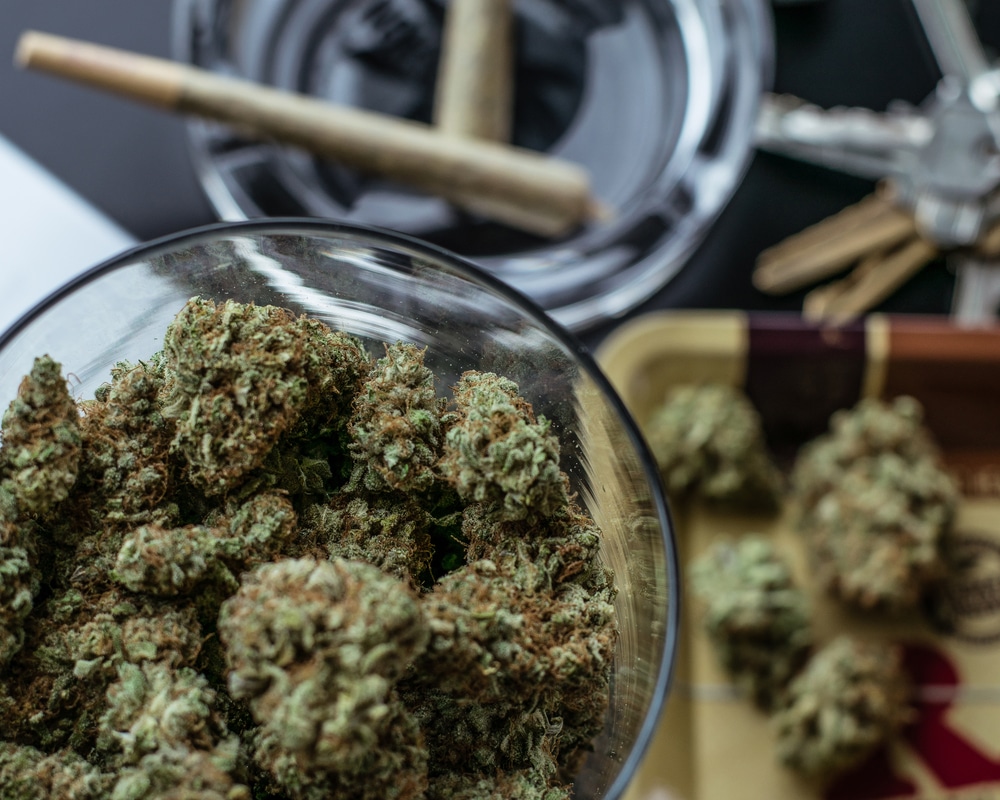
Avoiding getting greened out
Most people use cannabis to relax or chill, so getting greened out defeats the object. Strains with potent levels of THC are the main culprit, but what can you do to avoid it?
Educate yourself about drug interactions
The threat surges if you mix high THC weed with other drugs, especially alcohol. Mixing weed and booze can cause competitive inhibition, meaning your body absorbs more of the active ingredient. It often leads to greening out.
The enzyme that breaks down cannabinoids also processes medications and alcohol. Prescription meds can interact negatively with THC products, so check with your GP.
Can a greenout last for days? No. The effects usually last only a few hours, although some note an enduring weed hangover.
Consume with friends
It’s always advisable to consume cannabis with a few friends. Having familiar faces around while having the greenies can limit stress and anxiety. Your friends can warn if you’re overdoing things and reassure you in the face of unwanted reactions.
Edibles are very easy to overdo
Can you green out from edibles? Absolutely. Dosage accuracy is much harder to nail down, and it’s tough to know how each person will react.
The slow release and extended effects provide undeniable results. The protracted reaction means adverse effects endure, too. Start low and go slow is a mantra to sidestepping detrimental reactions.
Smoking joints or pipes provides immediate results. By contrast, edibles take significantly longer to manifest due to the digestion process. The THC has to be metabolized in the liver and then delivered to the bloodstream.
It could take up to three hours for the effects to engage. Initially, they may feel light or ineffective, but that’s often just the beginning, and reactions build. Edibles often operate like typical creepers, imperceptibly rising to an apex.
Many prematurely take a second dose only to feel the first kick in. Such a scenario might lead to effects of greening out. Always wait before consuming more.
You can take more, but not less
This excellent advice can avert the potential for unpleasant reactions to weed. The theory goes that it’s simple to add but impossible to subtract from a dose once administered. Start with a low amount, as it gives you something to build on.
The start low and go slow mantra should keep you covered. Try to avoid excessive consumption.
Try lower THC strains
Low THC strains are an excellent method to avoid feeling greened out. In states where it’s legal, retailers market strains with accurate THC measurements.
What to do when you overindulge
Our bodies have limits, and excess THC could cause issues. While cannabis products are typically forgiving and safe, overdoing it may lead to intense and overwhelming effects. We explain how to stop a green out and some effective methods to mitigate results.

Hydrate, always
Common symptoms include sweats or chills, so drinking water is an excellent way to rehydrate. Water helps cleanse your body of excess toxins and takes the edge off cottonmouth. It won’t flush the THC out of your system, though, as it takes time for the body to process.
Water is usually the go-to choice for hydration, as it’s accessible, cheap, and effective. Fresh juices and herbal teas work well, too. Avoid alcohol and caffeinated drinks, as they’re diuretics that may amplify dehydration and signs of greening out.
Take small amounts of CBD
Cannabidiol, or CBD, is a THC-antagonist, meaning it diminishes or counters the psychoactive effects. Researchers found evidence to conclude CBD inhibits THC metabolism in humans in their trial on CBD effects.
“CBD is capable of antagonizing the effects of THC, even when present in low doses,” Niesink and van Laar confirm. Their trial investigated how and if CBD protects against the psychological results of THC. Results showed it was effective at lower concentrations, so don’t overdo it.
Take a shower
If you feel the signs of an adverse reaction coming on, consider a shower. Use hot or cold water to counter the sweats or chills. Some find the change of location, isolation, and atmosphere can halt or ease the symptoms.
Start a conversation
Having a chat with a friend can take your mind off the situation and limit your reaction. Hanging with good friends is especially helpful, as you’re bound to feel more comfortable and comparatively relaxed. Let them know if you start feeling any green symptoms.
If you’re alone, call or text a friend who will understand your situation. Don’t call 911 and ask if you can die from a weed green out. Passing time and processing THC is your goal, so try to get calm and comfortable. Remember, nobody has died from a weed overdose.
Make sure you’re in a safe environment
Changing your location or environment can restrict or temper these unfavorable effects. Some people swear by fresh air, and exiting a smoky, stuffy room is often just the ticket. Others claim soothing outdoor locations like a park can help.
Some people prefer to be alone when they feel greened out. Others like being with friends who can assist them through an intense hour or two. Everyone needs a safe environment for a couple of hours.
Taking care of someone who greens out
Greened-out friends may be confused and defensive, so treat them with kid gloves. Present a calm and confident exterior, hold their hand, and assure them you won’t leave. Some need consoling, so remind them that the effects wear off in time.
Ensure you find them a comfortable and peaceful spot where they can relax and wait for nature to take its course. Avoid bright lights and loud music, and improve ventilation to make them comfortable. Make sure they’re breathing easily.
Apart from sympathy, there’s not much you can do other than keep them hydrated. Don’t force them to drink, as too much liquid could cause nausea or induce vomiting.
No more greenies
Greening out can be alarming and scary, but try to remember it’s temporary and should soon level out. Symptoms are manageable and ease over time. Fear is understandable, education is key, and panic is never helpful.
Be judicious with your consumption to avoid the effects of greening out. Know your tolerance and start low and go slow.
Growing your own cannabis can teach you about the plant and its potential. Buy cannabis seeds from The Seed Fair and choose from hundreds of strains at affordable rates.



